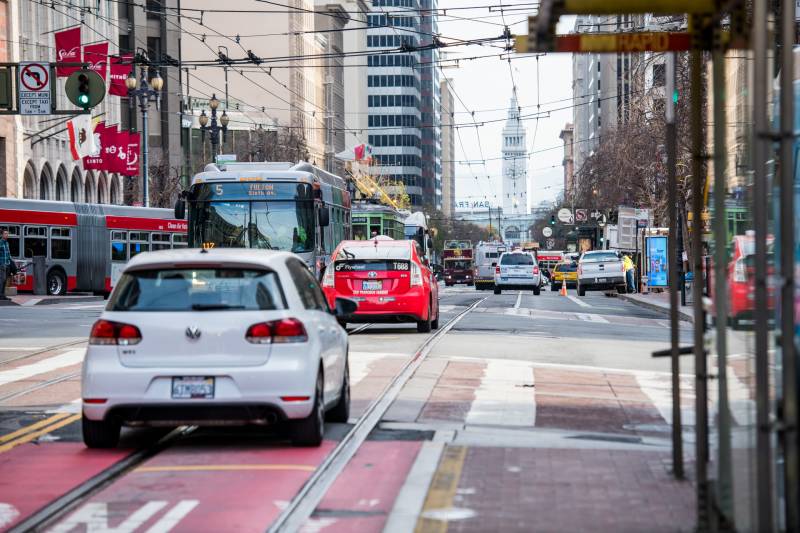But San Francisco has seemingly made little consistent progress on that front: 39 pedestrians were killed in 2022 alone, the deadliest year for traffic-related fatalities since 2007.
And the city’s Department of Public Health has already reported 23 traffic fatalities so far this year, exceeding the 22 recorded in all of 2023.
William Riggs, a USCF professor who focuses on mobility and transportation issues, believes that educating the public in simple terms is an often overlooked piece of the Vision Zero puzzle.
“When we consider Vision Zero, I think we forget substantive components about how we influence not only drivers but bicyclists and pedestrians to be responsible roadway users,” Riggs said. He points to a unique approach that San Francisco police took last week when an officer donned an inflatable chicken suit and crossed the road at the intersection of Alemany Boulevard and Rousseau Street in the city’s Excelsior neighborhood, where a 76-year-old man was killed in a hit-and-run earlier this year.
Drivers who didn’t stop for the officer in the chicken suit were immediately flagged by other officers standing by and issued citations for failing to yield to a pedestrian. A video of the chicken exercise was posted on X, drawing about 6 million views.
“There are many different kinds of educational frames we can put on what is happening on the roadway that don’t involve planner speak or engineering speak,” Riggs said.
In a formal veto request letter to Newsom, the California Senate Republican Caucus called SB 961 “overly prescriptive” and said that “the real focus should be on increasing law enforcement presence in our communities and appropriately punishing those who blatantly disregard traffic laws.”
But Cathy Chase, the president of Advocates for Highway and Auto Safety, which supported the bill, said, “We need to flip the script and think about how many people are being killed on our roadways — preventably — when we have solutions at hand.”
She added, “We need a multipronged approach where there is more effective law enforcement of traffic safety violations, and also the use of available technology to slow cars down.”
Lindsey, of Walk SF, said she was not at all surprised about pushback against the bill.
“They fought seatbelts, by the way, they fought windshield wipers, they fought airbags, they fought the rearview cameras,” she said, referring to the auto industry and anti-regulatory lawmakers. “They fight all of this stuff.”

